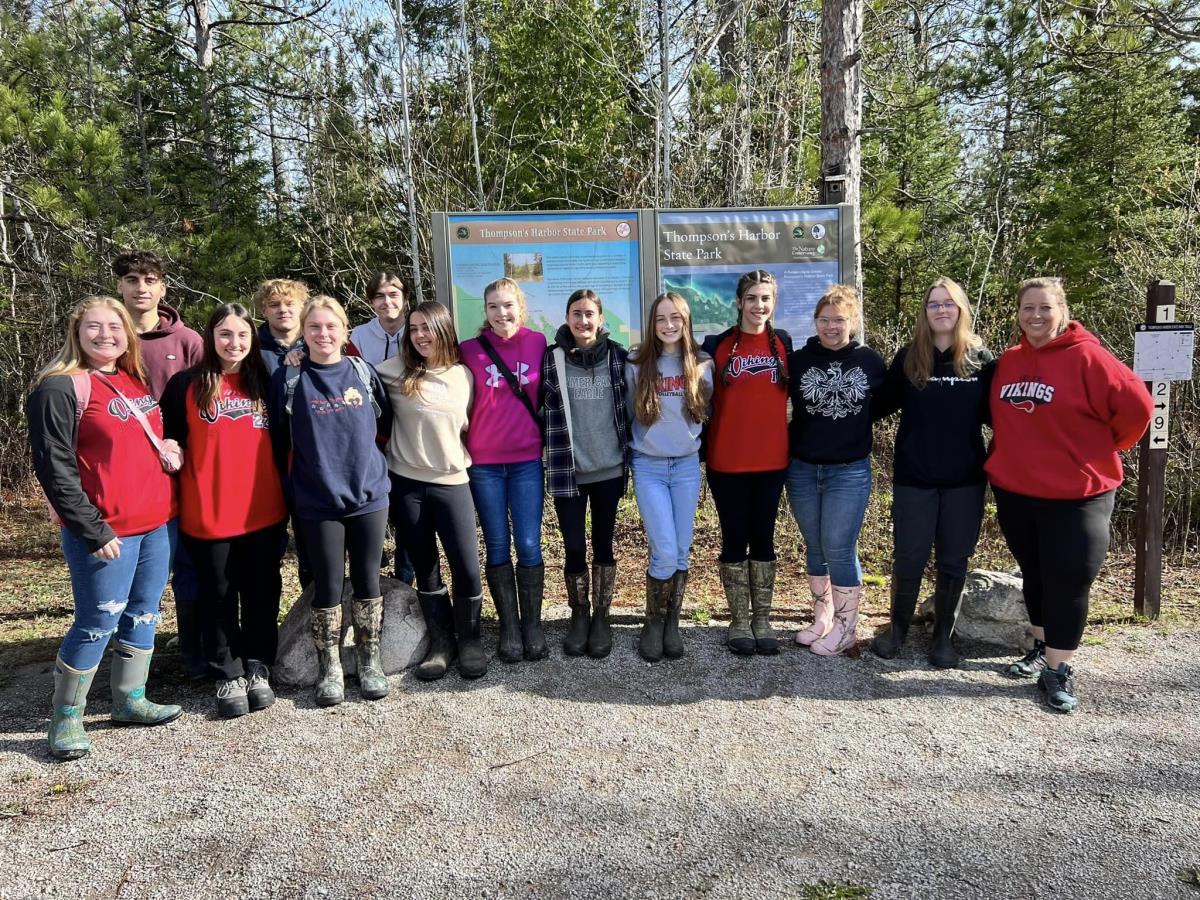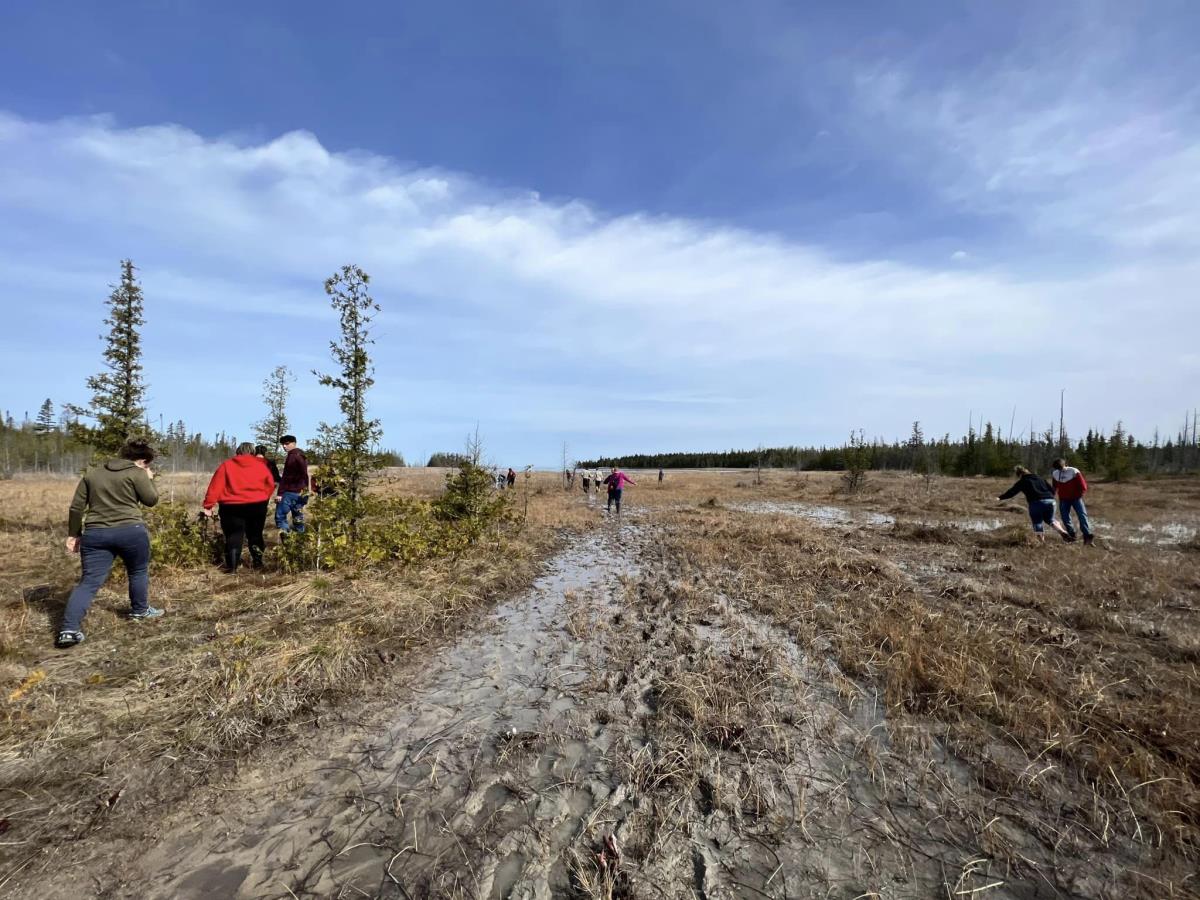Exploring a coastal fen along Lake Huron is a great way to bring a science class to life!
That was one of the ways Posen teacher Stephanie Dege brought place-based stewardship education to her secondary level students through a BWET NOAA grant focused on Marine Debris.
That was one of the ways Posen teacher Stephanie Dege brought place-based stewardship education to her secondary level students through a BWET NOAA grant focused on Marine Debris.
Seniors ventured into Thompson Harbor State Park, exploring a fen (which is fed by groundwater, versus a bog that is fed by rainwater) in search of plants and wildlife unique to the area. Some of the plants they saw are carnivorous. The fen has limited nutrients so some of the plants rely on insects and spiders to survive.
This field visit also included a trip to the shoreline to learn about the limestone/cobble beach ecology as well as the dune/swale ecology. They ended the day with some marine debris clean-up which not only helps all of the earth but reinforces the power of not littering and reducing the use of single-use plastics and other waste.
This is a social media post we did about the trip to Thompson Harbor State Park: click here
Stephanie took her 7th & 8th grade students on a trip to the Thunder Bay National Marine Sanctuary after spending time on Great Lakes curriculum. Students took in the museum, picked up trash along the shoreline and went for a cruise on the Lady Michigan to see a couple of shipwrecks in Thunder Bay.
This is a link to a post we did about the middle school trip: click here
GPS: 45.35195, -83.61985
Affiliated Organizations:


-1.png)
.jpg)
-1.png)
.jpg)